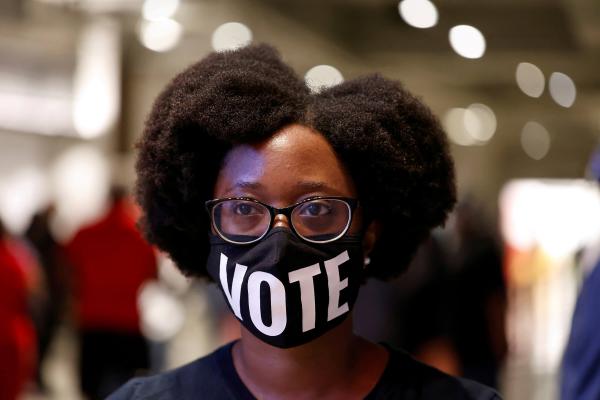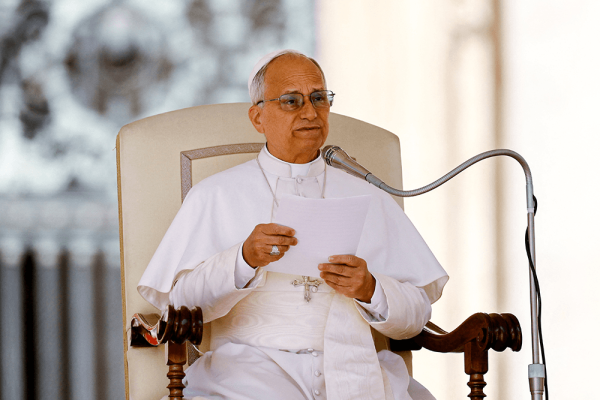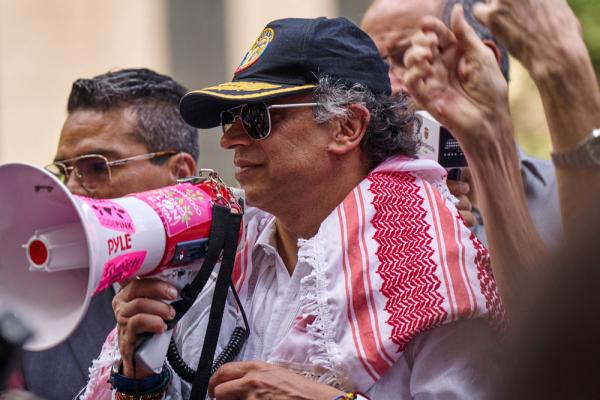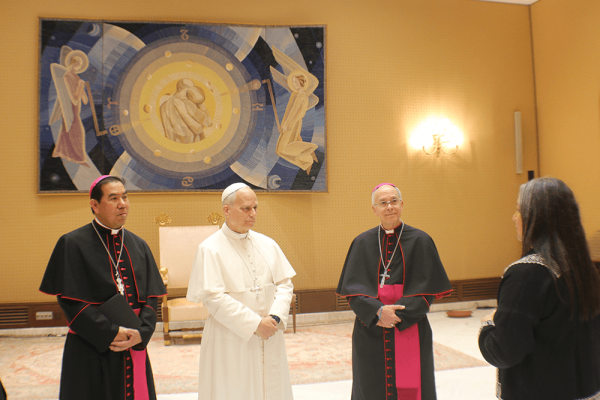Just two weeks before the presidential election, the U.S. is deeply polarized but there’s one thing that’s on everyone’s mind: the fairness of the election.
According to new survey data released by the Public Religion Research Institute (PRRI), 57 percent of Americans ranked fairness of presidential elections as the top critical issue in the country when asked to choose from 14 issues ranging from the COVID-19 pandemic to racial inequality.
In fact, “it was the only topic that most Americans agree on,” said Robert P. Jones, CEO and founder of PRRI. Despite differences in how Democrats and Republicans view health care, unemployment, crime, terrorism, and racial inequality, “the only thing that the two parties really agree are critical issues are the fairness of presidential elections. Both parties are concerned about that,” Jones commented in the webinar Amid Multiple Crises, a Divided Nation, which discussed the results of the 2020 American Values Survey.
Designed and conducted by PRRI, the eleventh annual survey contains data obtained via phone interviews and online surveys from a random sample of 2,538 adults aged 18 years and older living in all 50 states and Washington D.C.
Of the survey participants, only 18 percent are very confident that the election will be conducted fairly and accurately. That number tracks across religions: 16 percent of white evangelical Protestants, 26 percent of white Catholics, 18 percent of Hispanic Catholics, 16 percent of non-Christian religions, and 17 percent of religiously unaffiliated participants are very confident in the fairness and accuracy of the election. Almost half are somewhat confident (49 percent), and one-third of Americans (33 percent) report no confidence at all that the election will be conducted fairly and accurately.
The last time PRRI asked this question, prior to the 2016 election, the results swung in the opposite direction: 43 percent of participants reported a great deal of confidence, 38 percent only some confidence, and 17 percent hardly any confidence that their votes would be counted accurately.
Notably, the survey indicates that Americans plan to vote and are hopeful that their votes will be counted. A record-high 76 percent of Americans are “absolutely certain” that they are going to vote this year.
More than one-third say they are very confident that their votes will be counted accurately (35 percent) and 47 percent are somewhat confident. Around one in five (18 percent) are not confident at all that their votes will be counted accurately.
According to Karlyn Bowman, senior fellow at the American Enterprise Institute, this confidence that individual votes will be counted accurately “is higher than Americans’ confidence in the system overall.”
While 69 percent of participants in this survey said they were worried that voters might face harassment in this election campaign, only 11 percent of participants indicated that they had ever experienced harassment while voting.
“This data is reflected in results by surveys conducted by Marist and NPR,” Bowman added. “Even if you asked Latinos and African Americans, the numbers [of voter harassment] were very low overall.”
There's a gap in doubt that, should Trump lose, he will accept results and concede defeat: Only 9 percent of religiously unaffiliated voters say they're very confident, while 29 percent of white evangelical Protestants are very confident that Trump will peacefully concede.
Alternatively, 49 percent of white mainline Protestants, 68 percent of black Protestants, and 68 percent of unaffiliated voters are "not at all confident."
While 42 percent of participants are somewhat confident that they will know the winner on election night, 44 percent are not at all confident and only 14 percent are very confident.
The data on this question is consistent across party lines and religious affiliation, as is the case with questions addressing whether voting by mail will be as secure as voting in person (39 percent of all participants are not at all confident) and whether Republican leaders in Congress will demand that Trump leave the White House if he loses the election and refuses to concede (41 percent of all are somewhat confident).
It seems that voters are fueled by a fervent desire to redirect the United States toward a better future. White evangelical Protestants (59 percent) are the only major religious group to say that the country is moving in the right direction, while every other group interviewed is less optimistic. Forty percent of white mainline Protestants, 28 percent of Hispanic Catholics, and 24 percent of non-Christian religious Americans, along with 18 percent of religiously unaffiliated Americans and 13 percent of Black Protestants say the country is headed in the right direction.
And, even though the data suggest a large divide among policy issues, another major point of agreement is that America’s best days are ahead of us. Majorities of nearly every major religious group (this includes 62 percent of white Catholics, 62 percent of Hispanic Catholics, 61 percent of religiously unaffiliated Americans, 61 percent of Black Protestants, 59 percent of non-Christian religious Americans, 57 percent of white mainline Protestants, 55 percent of white evangelical Protestants, and 53 percent of Hispanic Protestants) say that the best is yet to come.
Is such optimism foolish?
“The data that [the American Values Survey] presents is fascinating and valuable; this suggests challenges that await us in post-election America,” said Andra Gillespie, associate professor of political science and director of the James Weldon Johnson Institute at Emory University. “One of the things that comes from this is the need for people to listen to each other more. I pray that we get there.”
Got something to say about what you're reading? We value your feedback!







